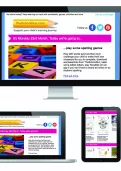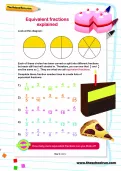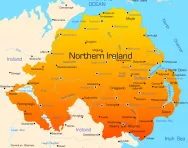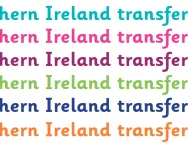Important update from TheSchoolRun
For the past 13 years, TheSchoolRun has been run by a small team of mums working from home, dedicated to providing quality educational resources to primary school parents. Unfortunately, rising supplier costs and falling revenue have made it impossible for us to continue operating, and we’ve had to make the difficult decision to close. The good news: We’ve arranged for another educational provider to take over many of our resources. These will be hosted on a new portal, where the content will be updated and expanded to support your child’s learning.
What this means for subscribers:
- Your subscription is still active, and for now, you can keep using the website as normal — just log in with your usual details to access all our articles and resources*.
- In a few months, all resources will move to the new portal. You’ll continue to have access there until your subscription ends. We’ll send you full details nearer the time.
- As a thank you for your support, we’ll also be sending you 16 primary school eBooks (worth £108.84) to download and keep.
A few changes to be aware of:
- The Learning Journey weekly email has ended, but your child’s plan will still be updated on your dashboard each Monday. Just log in to see the recommended worksheets.
- The 11+ weekly emails have now ended. We sent you all the remaining emails in the series at the end of March — please check your inbox (and spam folder) if you haven’t seen them. You can also follow the full programme here: 11+ Learning Journey.
If you have any questions, please contact us at [email protected]. Thank you for being part of our journey it’s been a privilege to support your family’s learning.
*If you need to reset your password, it will still work as usual. Please check your spam folder if the reset email doesn’t appear in your inbox.
The parent's guide to InCAS tests

They may not have to take SATs, unlike their peers in England, but children in Northern Ireland and Scotland aren’t immune to testing and teachers do have to assess their pupils’ learning. In many schools, InCAS tests play a part in the assessment procedure.


Boost Your Child's English & Maths!
- Weekly programme for each school year
- Worksheets sent direct to your inbox
- Keeps your child's learning on track
What are InCAS tests?
InCAS stands for interactive computerised assessment system, and is a type of test devised by the Centre for Evaluation and Monitoring (CEM) at the University of Durham, which also produces other school assessments, including 11+ tests in many areas. The computer-based tests are designed to help monitor children’s progress, from Year 1 (P2 in Scotland) to Year 6 (P7).
The tests cover six key areas of learning:
- Reading: word recognition, decoding and comprehension.
- Spelling
- Maths: counting, place value, fractions, problem-solving, measures, shape, space and data handling.
- Mental maths: addition, subtraction, multiplication and division.
- Developing ability: a measure of learning potential, based on language and non-verbal skills.
- Attitudes towards reading, maths and school life.
The tests are intended to help teachers pinpoint each child’s strengths, weaknesses and learning needs, compare their performance over time, and identify where interventions are needed, including in the case of children with special educational needs.
Who takes InCAS tests?
In 2012, InCAS tests became compulsory for all children in Northern Ireland in Years 4 to 7, except those with significant learning difficulties. Children were to be tested once a year in reading and maths. Concerns about the accuracy of the tests led to them being scrapped in 2013, but many schools in Northern Ireland and Scotland still use them to inform their teacher assessments.
Schools can choose how they use InCAS tests. Some have stuck to the schedule previously used in Northern Ireland. Some schools administer them every year, from Year 1 and Year 6; others use them just once as a snapshot of children’s learning; others pick and choose which years to test.
Although the tests are not compulsory, many schools are choosing to use them because, without a national examination programme for primary-school pupils in Scotland and Northern Ireland, they lack a consistent way of gathering data about children’s ability and achievement. Using a standardised test like InCAS allows them to monitor progress over time, and compare the performance of different year groups.
What do the tests involve?
InCAS tests are designed to be fun, with a quiz format and the whole class taking the test at the same time. Children work on individual computers with headphones. They complete some practice questions first, and an animated character explains what they have to do.
Children are given a series of questions, starting with easy ones and increasing in difficulty. When they get to a point where they questions are too hard and they they’re start getting them wrong, they’re given a new set, again starting with the easiest. This process happens several times to make the result more reliable, as it won’t be skewed by one or two careless answers.
The tests take 20 to 30 minutes per subject, but schools don’t have to test children in all six areas. You can access online INCAS test practice papers from our partners at Exam Papers Plus.
What do the InCAS results mean?
The results of InCAS tests include a summary of children’s progress if they’ve taken the tests before, and predictions for the end of the Key Stage. You may not be given the exact results from the tests, as teachers will usually use them to inform their assessment and curriculum levels (in Scotland) or levels of progression (in Northern Ireland).
You may be given your child’s reading age and general maths age, as calculated by the tests. This is a guide as to whether they’re performing at, above or below the level expected for their age. However, it’s important to remember that InCAS tests are, first and foremost, a tool for schools: they’re not intended to compare children or schools against each other, or used in any way to stream children who are moving on to secondary school.
What’s the future for InCAS tests?
Compulsory national assessment was reintroduced in Scottish primary schools in 2017 so it’s likely that schools will no longer opt to use InCAS tests as well as the formal tests in the future.
No such plans have been announced for Northern Ireland.








